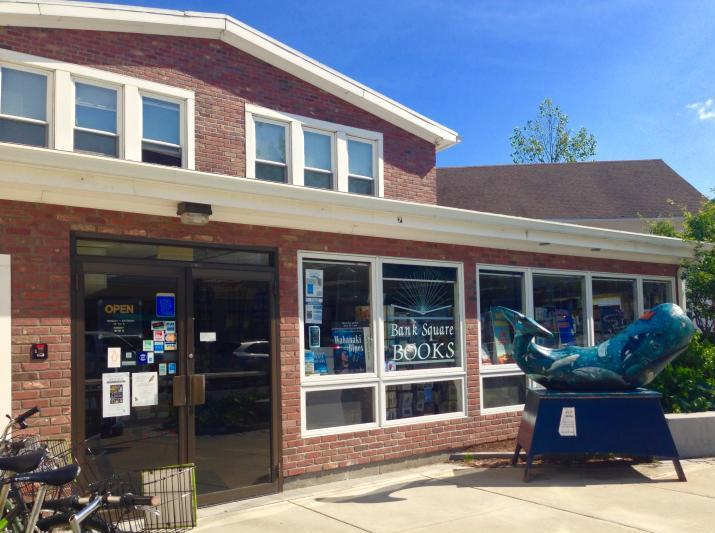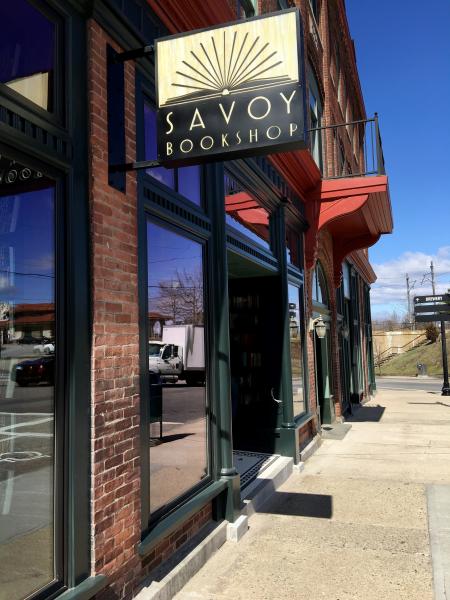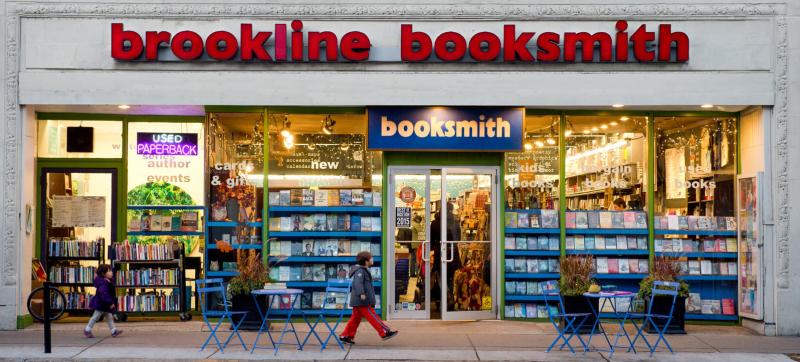This is the latest installment of our series examining how independent bookstores around the country have navigated rising rents, lease negotiations and relationships with landlords; see previous articles here.
 Annie Philbrick is the owner of two stores in southern New England: Bank Square Books in Mystic, Conn., and Savoy Bookshop & Cafe in Westerly, R.I. Though the two stores are less than 15 miles apart, their rental arrangements are vastly different. Bank Square Books, which opened more than 25 years ago, has a fairly typical lease that costs around 8%-9% of the store's gross sales. With Savoy Bookshop, however, Philbrick pays a very small percentage of the previous month's sales as rent.
Annie Philbrick is the owner of two stores in southern New England: Bank Square Books in Mystic, Conn., and Savoy Bookshop & Cafe in Westerly, R.I. Though the two stores are less than 15 miles apart, their rental arrangements are vastly different. Bank Square Books, which opened more than 25 years ago, has a fairly typical lease that costs around 8%-9% of the store's gross sales. With Savoy Bookshop, however, Philbrick pays a very small percentage of the previous month's sales as rent.
 "What they've done for us in Westerly is really make an investment in the community," said Philbrick, who opened that store in 2016 in partnership with her two landlords. They are both local, community-focused developers who had been looking to bring a new bookstore to Westerly after the town lost its only indie in 2014. "[For them] it's not about renting the building to make money."
"What they've done for us in Westerly is really make an investment in the community," said Philbrick, who opened that store in 2016 in partnership with her two landlords. They are both local, community-focused developers who had been looking to bring a new bookstore to Westerly after the town lost its only indie in 2014. "[For them] it's not about renting the building to make money."
Philbrick recalled that going into negotiations with those landlords, she brought ABACUS data and results from a survey showing that occupancy costs for successful independent bookstores are typically in the 7%-10% range. Her Westerly landlords decided to cut that in half. "They want us to succeed," explained Philbrick. "They don't want rent to be a burden and they're in a position to do that."
In Mystic, meanwhile, Philbrick's landlords have owned the building for decades. In recent years, she's brought up the possibility of switching to a fixed-percentage model similar to what she has in Westerly, but her landlords have not been amenable. "I get it," she said. "They've had it a long time, and it's a different business model." She added that she doesn't think what she pays in Mystic is exorbitant or "out of line"--she simply prefers the other model. She also noted that she has negotiated successfully with her Mystic landlords in the past.
In 2013, Bank Square Books expanded into an adjacent storefront owned by the same landlord. The space had been empty for some time, and after Hurricane Sandy in October 2012, her landlord was keen finally to have the storefront filled by a tenant with a long-term lease. Her landlord initially asked for a rent that was higher than she could pay, but after the storefront stayed empty for another nine months or so, the landlord returned and asked her what she would need in order to move in. To test the waters, she signed an 18-month lease at a reduced rent and later signed on long term.
When asked about the retail landscape in Mystic, Philbrick reported that rents are expensive, and there have been long stretches where storefronts have remained empty because of landlords being unwilling to budge on high rents. If her landlord ever sold her building to a landlord or developer who wanted to raise her rent "because it's Mystic," she said, "I'm not sure I could stay there."
On the subject of negotiating with landlords, Philbrick advised trying to "be creative" about finding ways to make things more affordable. That could include asking not to pay rent during a build-out, asking landlords to redo the floor or put in new fixtures, or having the electric company reassess your lighting. Booksellers "should not be afraid to have that conversation" about various concessions and should always try to educate landlords about the financial realities of bookstores. At the same time, they can talk about how "indie bookstores are part of a community and enhance a community." She acknowledged that "you might find somebody who just isn't going to work with you," and in that case, you should move on. She said: "If you find a landlord or a space that isn't quite right, look down the street for another space."
As for getting a rental agreement like the one she has in Westerly, Philbrick said that, unfortunately, "you have to get a little bit lucky." Lessees aren't necessarily "in the driver's seat" when it comes to negotiations, but sometimes they can find landlords who are invested in the community, want to see main street thrive and are in the position to charge substantially below market rent.
On the bright side, though, she said that more and more people--consumers as well as landlords--seem to be understanding the value of keeping businesses local. Said Philbrick: "People get that now." --Alex Mutter





IPC.0204.S3.INDIEPRESSMONTHCONTEST.gif)






 Effective with the New Year, Marshall Smith, bookseller entrepreneur and co-owner of
Effective with the New Year, Marshall Smith, bookseller entrepreneur and co-owner of 
 Annie Philbrick is the owner of two stores in southern New England:
Annie Philbrick is the owner of two stores in southern New England:  "What they've done for us in Westerly is really make an investment in the community," said Philbrick, who opened that store in 2016 in partnership with her two landlords. They are both local, community-focused developers who had been looking to bring a new bookstore to Westerly after the town lost its only indie in 2014. "[For them] it's not about renting the building to make money."
"What they've done for us in Westerly is really make an investment in the community," said Philbrick, who opened that store in 2016 in partnership with her two landlords. They are both local, community-focused developers who had been looking to bring a new bookstore to Westerly after the town lost its only indie in 2014. "[For them] it's not about renting the building to make money."IPC.0211.T4.INDIEPRESSMONTH.gif)
 Booksellers from San Diego-area stores the Book Catapult, Mysterious Galaxy and Warwick's enjoyed dinner with author Lydia Fitzpatrick, in anticipation of her debut novel, Lights All Night Long (Penguin Press), which will be published in April. The event was hosted by Penguin Random House sales reps Tom Benton and Amy Comito.
Booksellers from San Diego-area stores the Book Catapult, Mysterious Galaxy and Warwick's enjoyed dinner with author Lydia Fitzpatrick, in anticipation of her debut novel, Lights All Night Long (Penguin Press), which will be published in April. The event was hosted by Penguin Random House sales reps Tom Benton and Amy Comito. Last week, the Portland Press Herald/Maine Sunday Telegram announced it would stop publishing freelance reviews of books about Maine or written by Maine authors.
Last week, the Portland Press Herald/Maine Sunday Telegram announced it would stop publishing freelance reviews of books about Maine or written by Maine authors. Diary of an Awesome Friendly Kid
Diary of an Awesome Friendly Kid Jasper Fforde (The Eyre Affair,
Jasper Fforde (The Eyre Affair, 